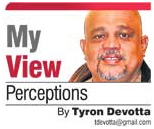There is a notion, a thought, a germ of an idea that is forming amongst some of my ex-journalist friends, that there is a need for a newspaper or magazine or some other media that should be managed and run by journalists themselves. An interesting concept I would say, as the idea itself seems new in this country.
The present media climate in Sri Lanka seems to have prompted some of these journalists (from another era of journalism) to think about a formula that could foster a brand of journalism that will be “unbiased” and not have the agendas of the owners. The owners obviously fall into the ‘bad guys’ category, as they are seen to be directly influencing the editorial to create the spin to their advantage.
But before we go into all that, there is a need for some inward examination and reflection on the way professional journalists themselves understand the mechanics of modern day journalism.
Today, with all the equipment available to a journalist, it’s becoming increasingly easier for reports to be written and exposures to be done that can create sensational journalism. Also there is no lack of journalism, today in the Sri Lankan media scene – there are a number of newspapers, TV channels, radio stations and websites spewing out news! So how a new one will make any difference is another matter to consider. Therefore, before they take the moral high ground in creating this utopian news “medium,” it is necessary for these journalists to understand that they need to identify what type of journalism they choose to be in.
When I started out as a journalist over 30 years ago, a cub reporter armed with pen and notebook, there were some vital things that were drilled into us about the art of gathering information; and the sole of that art was how to be objective. We were told that we had to take an impartial stance and not in any way get emotionally involved with a story we were handling. How does one do that? It was almost impossible – it was not practical. But however impractical it was, it was the dogma and that is what counted.
A journalist’s idea of objectivity has many definitions, but it may be considered most simply a mechanism that allows journalists to divorce fact from opinion. Journalists view objectivity as refusing to allow individual bias to influence what they report. This is a journalism in which all facts and people are regarded as equal and equally worthy of coverage.
This idea comes from the enlightenment notion of truth and is essentially what 20th century scholars refer to as the scientific method. An enlightenment view of truth allows objectivity to be considered as an attainable idea, to which the story’s balance and fairness as much as accuracy is an important part of its make up! And it is this very objectivity that frowns upon sensational journalism.
In other words, if one follows the objectivity path, there is the great probability that the stories that result won’t always have screaming banner headlines and wouldn’t do much towards pumping the adrenaline levels of their readers or viewers. What then would a media run by journalists resemble? Is it that as professionals they would be running away from one “evil master” vis-à-vis the media moguls only to become one themselves, or take a completely different path that may however not turn out to be very lucrative by today’s standards? What standards will journalists set if they have to run and manage their own newspapers? Will there be a formula, a business model that can make it successful in today’s world of YouTube, citizen journalism, bloggers and mobile phones that can record high definition video with instant uploading capability? How would the rules of the old world journalism cut through the cacophony of this information overloaded world to create news that is credible, reliable, unbiased, impartial, accurate, balanced and fair? And also be a hit? Is this at all possible? This is an important question that needs to be answered.
(The writer, a PR consultant and head of Media360, was previously a mainstream journalist in print and electronic media. He also edits a new media website.)
Source: Daily FT (http://www.ft.lk/columns/a-



